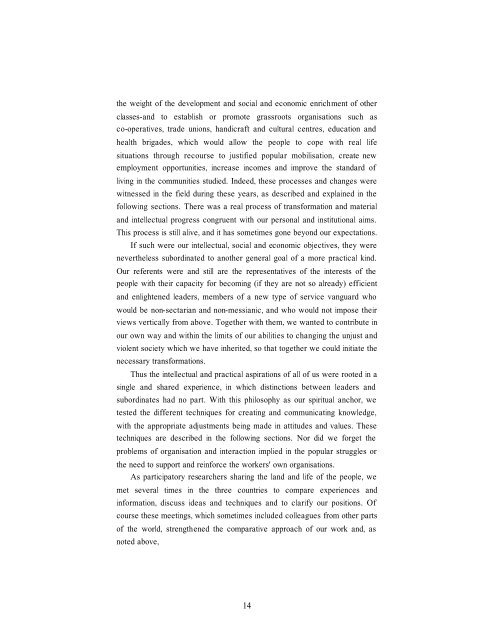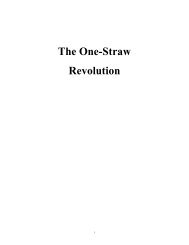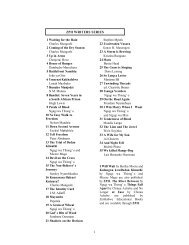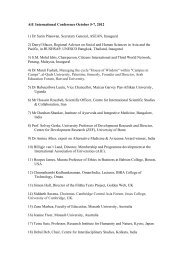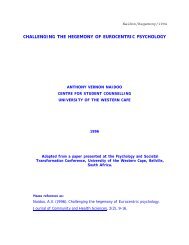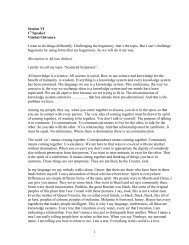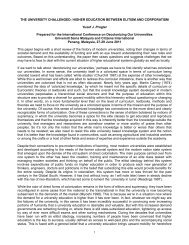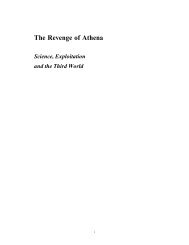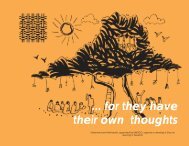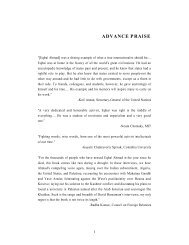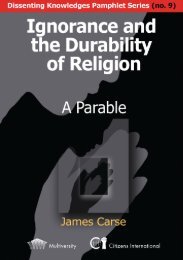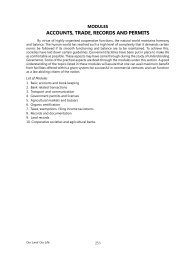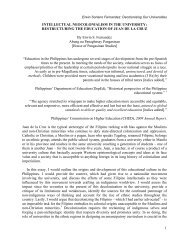Knowledge and People's Power - Multiworld India
Knowledge and People's Power - Multiworld India
Knowledge and People's Power - Multiworld India
- No tags were found...
Create successful ePaper yourself
Turn your PDF publications into a flip-book with our unique Google optimized e-Paper software.
the weight of the development <strong>and</strong> social <strong>and</strong> economic enrichment of otherclasses-<strong>and</strong> to establish or promote grassroots organisations such asco-operatives, trade unions, h<strong>and</strong>icraft <strong>and</strong> cultural centres, education <strong>and</strong>health brigades, which would allow the people to cope with real lifesituations through recourse to justified popular mobilisation, create newemployment opportunities, increase incomes <strong>and</strong> improve the st<strong>and</strong>ard ofliving in the communities studied. Indeed, these processes <strong>and</strong> changes werewitnessed in the field during these years, as described <strong>and</strong> explained in thefollowing sections. There was a real process of transformation <strong>and</strong> material<strong>and</strong> intellectual progress congruent with our personal <strong>and</strong> institutional aims.This process is still alive, <strong>and</strong> it has sometimes gone beyond our expectations.If such were our intellectual, social <strong>and</strong> economic objectives, they werenevertheless subordinated to another general goal of a more practical kind.Our referents were <strong>and</strong> still are the representatives of the interests of thepeople with their capacity for becoming (if they are not so already) efficient<strong>and</strong> enlightened leaders, members of a new type of service vanguard whowould be non-sectarian <strong>and</strong> non-messianic, <strong>and</strong> who would not impose theirviews vertically from above. Together with them, we wanted to contribute inour own way <strong>and</strong> within the limits of our abilities to changing the unjust <strong>and</strong>violent society which we have inherited, so that together we could initiate thenecessary transformations.Thus the intellectual <strong>and</strong> practical aspirations of all of us were rooted in asingle <strong>and</strong> shared experience, in which distinctions between leaders <strong>and</strong>subordinates had no part. With this philosophy as our spiritual anchor, wetested the different techniques for creating <strong>and</strong> communicating knowledge,with the appropriate adjustments being made in attitudes <strong>and</strong> values. Thesetechniques are described in the following sections. Nor did we forget theproblems of organisation <strong>and</strong> interaction implied in the popular struggles orthe need to support <strong>and</strong> reinforce the workers' own organisations.As participatory researchers sharing the l<strong>and</strong> <strong>and</strong> life of the people, wemet several times in the three countries to compare experiences <strong>and</strong>information, discuss ideas <strong>and</strong> techniques <strong>and</strong> to clarify our positions. Ofcourse these meetings, which sometimes included colleagues from other partsof the world, strengthened the comparative approach of our work <strong>and</strong>, asnoted above,14


